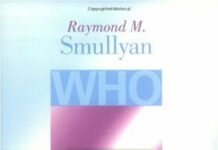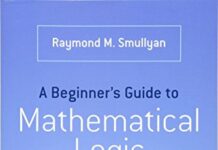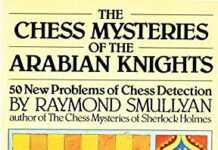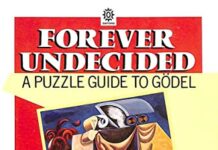
Ebook Info
- Published: 1993
- Number of pages: 184 pages
- Format: PDF
- File Size: 3.26 MB
- Authors: Raymond M. Smullyan
Description
This work is a sequel to the author’s Gödel’s Incompleteness Theorems, though it can be read independently by anyone familiar with Gödel’s incompleteness theorem for Peano arithmetic. The book deals mainly with those aspects of recursion theory that have applications to the metamathematics of incompleteness, undecidability, and related topics. It is both an introduction to the theory and a presentation of new results in the field.
User’s Reviews
Editorial Reviews: Review “A self-contained exposition, it presumes neither a reading of the previous volume . . . nor a prior knowledge of recursion theory. The reader with some familiarity with both recursion theory and logic should find this an excellent source for the interconnections between them.” –Choice”Smullyan is not only an outstanding authority on this subject, but is also a skilled pedagogue, with a special talent for formulating simple riddles, which illuminate this very difficult and profound subject. Smullyan has made an important contribution toward the wider understanding of the work of Godel and his followers. . . . Smullyan plays a significant role in the further development of mathematical logic and the elucidation of its relation to metamathematics. He continues to be one of the foremost popularizers of the subject.” –American Scientist”. . . an interesting presentation of recursion theory from the point of view of its applications in metamathematics, indicating many interrelations between various notions and properties. It will certainly be studied carefully and referred to by students and specialists alike.” –Roman Murawski, Mathematical Reviews About the Author Raymond M. Smullyan is at Indiana University.
Reviews from Amazon users which were colected at the time this book was published on the website:
⭐With due respect for other reviewers, services like half (an ebay service) and a few other sellers are now offering used versions of this classic for about $40. New prices are more than on Amazon. ALL those sellers have the same titles here on Amazon (see the used third parties) for the same or less.But that begs the question: do you even WANT to pay $40 (or even $20 US) for this book? Recursion, as a subject, goes from relatively simple (Russian dolls and fractals) to extremely complex (Computer Science and numeric analysis techniques, Godel, as this text, etc). This classic work is MORE advanced than the author’s original Godel (
⭐) text, and requires grad level math to appreciate.In fact, recursion (essentially self similarity) also is even being written about as the essence of self awareness, and even the basis of thinking itself (see the recursive mind–
⭐– an amazing book on many aspects of recursion).This is a small book, and is not nearly as simple as numerous “layman” versions of Godel, yet not as complex as the Dover classic editions you can get for $8 US if you REALLY get the math and want to go deep. Put recursion in Amazon’s search, you’ll find a wealth of other options.In case you were looking for recursion in computing rather than math or logic, an excellent but expensive version in that frame is Robert’s classic Pascal recursion text, updated for Java at:
⭐; and if you do choose this title, don’t hesitate to consider third parties here. Smullyan looks at it more from a logician’s frame with complex Godelian proofs, and “meta” in that world is ironically a synonym for recursion itself– metamath being math about math; metacognition thinking about thinking, etc. Enjoy!EMAILER QUESTION: Given the importance you note about recursion, does this cover the field pretty broadly? A. Oh heavens, no! If recursion is so basic to thought, you can imagine thousands of other applications, none covered here. Two important examples: 1. Since “thought” is so much about language, there are hundreds of grammar, NLP and other linguistic books written that cover that aspect of recursion. That doesn’t even begin to touch on recursion in art, literature, etc. 2. Learning, especially machine learning, uses recursion extensively. In fact there is a whole field within pattern recognition and classification, as well as statistics, that centers on recursion math and logic. Even the key learning process of feedback itself is recursive– you are “feeding” new information (and recursively, previous results) back into the process to “learn” in the sense of making it more robust, do new thinks, get better answers, etc. The present title is much more about mathematical logic, Godel, etc. but is still, in Smullyan’s inimitable style, fun and filled with fascinating examples despite the numerous levels of logic and math.If you’re uncertain of the level and your interest vs. topics covered, DO use the Amazon “look inside” feature on this title, which is quite generous, and will give you a good feel for the content before you decide to invest.
Keywords
Free Download Recursion Theory for Metamathematics (Oxford Logic Guides, 22) 1st Edition in PDF format
Recursion Theory for Metamathematics (Oxford Logic Guides, 22) 1st Edition PDF Free Download
Download Recursion Theory for Metamathematics (Oxford Logic Guides, 22) 1st Edition 1993 PDF Free
Recursion Theory for Metamathematics (Oxford Logic Guides, 22) 1st Edition 1993 PDF Free Download
Download Recursion Theory for Metamathematics (Oxford Logic Guides, 22) 1st Edition PDF
Free Download Ebook Recursion Theory for Metamathematics (Oxford Logic Guides, 22) 1st Edition



